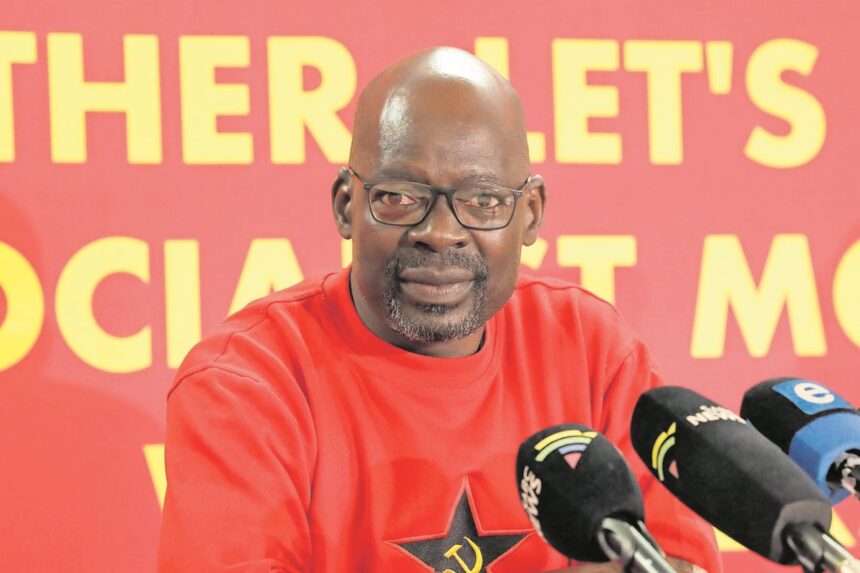The South African Communist Party (SACP) has announced its intention to contest the upcoming local government elections as an independent party. Despite this decision, the SACP has made it clear that they do not view themselves as opposition to the African National Congress (ANC), their long-standing alliance partner.
SACP general secretary Solly Mapaila revealed the party’s plans during a recent press briefing, stating that the final decision would be made at the special national congress in Boksburg next week. This move could potentially strain the alliance between the SACP and the ANC, as the latter has expressed concerns about the SACP’s decision to contest the elections independently.
In response to these concerns, SACP spokesperson Alex Mashilo emphasized that the party’s decision to contest the elections does not signify opposition to the ANC. Instead, he explained that the SACP is exercising its democratic right as a political party, while maintaining its alliance with the ANC.
Despite previous threats to stand alone in elections, the SACP has now solidified its decision to participate in the 2026 local government elections. This resolve may have been strengthened by the ANC’s recent decision to enter a government of national unity.
Mashilo further elaborated that the modalities of the SACP’s election campaign will be finalized at the special national congress. He refrained from confirming whether the party would feature the image of one of its leaders on the ballot paper, stating that such details would be determined at a later stage.
The strained relationship between the SACP and the ANC has been exacerbated by the ANC’s decision to form a unity government with the Democratic Alliance (DA) without consulting its alliance partners. This move has led to accusations from the SACP, labor federation Cosatu, and affiliate unions that the ANC has prioritized its relationship with the DA over its alliance partners.
In response to the SACP’s decision, ANC secretary general Fikile Mbalula emphasized the need for further discussions between the two parties. While acknowledging the SACP’s independence, Mbalula warned against the party contesting the elections alone and expressed a willingness to engage in dialogue to address the implications of the SACP’s decision.
Looking ahead, the SACP plans to continue working with Cosatu, the South African National Civic Organization, and other progressive organizations. The party’s decision to contest the 2026 elections stems from a previous resolution made at the national congress in 2022, which was postponed due to the proliferation of political parties in the 2024 elections.
In conclusion, the SACP’s decision to contest the upcoming elections marks a significant development in South African politics and may impact the longstanding alliance between the SACP and the ANC. As both parties navigate this new dynamic, further discussions and engagements will be crucial in determining the future of their alliance.







